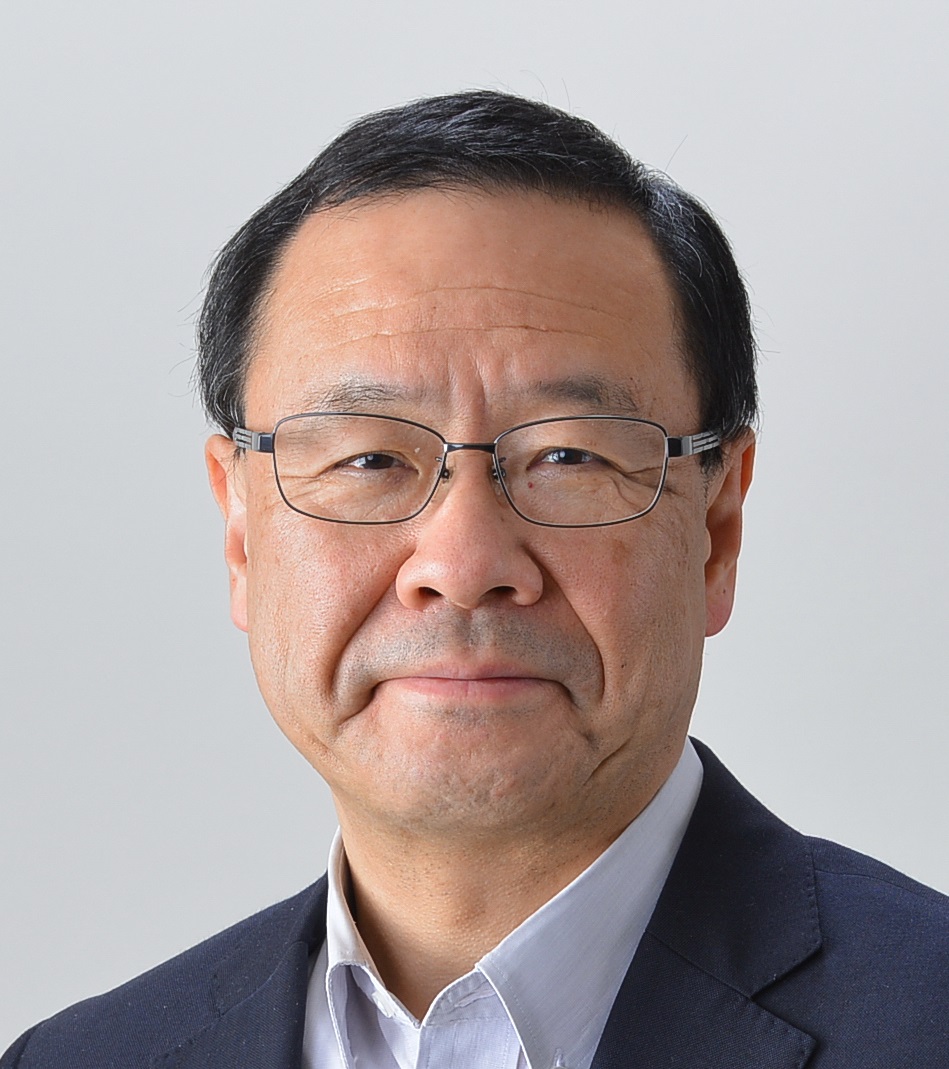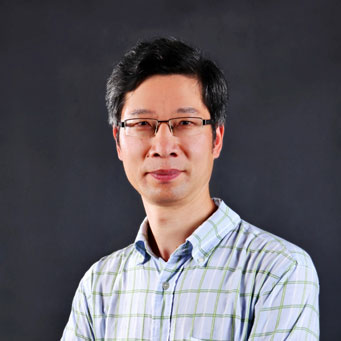Topic #1: Cyber-Physical-Social Intelligence
Prof. Tianruo Yang
Zhengzhou University, China

The booming growth and rapid development in embedded systems, wireless communications, sensing techniques and emerging support for cloud computing and social networks have enabled researchers and practitioners to create a wide variety of Cyber-Physical-Social Systems (CPSS) that reason intelligently, act autonomously, and respond to the users’ needs in a context and situation-aware manner, namely Cyber-Physical-Social Intelligence. It is the integration of computation, communication and control with the physical world, human knowledge and sociocultural elements. It is a novel emerging computing paradigm and has attracted wide concerns from both industry and academia in recent years. This talk will present our latest research on Cyber-Physical-Social Intelligence. Corresponding case studies in some typical applications will be shown to demonstrate the feasibility and flexibility.
BioLaurence T. Yang got his BE in Computer Science and Technology and BSc in Applied Physics both from Tsinghua University, China and Ph.D in Computer Science from University of Victoria, Canada. He is the Academic Vice-President and Dean of School of Computer Science and Artificial Intelligence, Zhengzhou University, China. His research includes Cyber-Physical-Social Intelligence. He has published 500+ papers in the above area on top IEEE/ACM Transactions with total citations of 45000+ and H-index of 1058 including 8 and 44 papers as top 0.1% and top 1% highly cited ESI papers, respectively.
His recent honors and awards include the member of US National Academy of Artificial Intelligence (2025), a foreign member of Russian Academy of Engineering (2024) and a member of Academia Europaea, the Academy of Europe (2021), the John B. Stirling Medal (2021) from Engineering Institute of Canada, IEEE Sensor Council Technical Achievement Award (2020), IEEE Canada C. C. Gotlieb Computer Medal (2020), Clarivate Analytics (Web of Science Group) Highly Cited Researcher (2019, 2020, 2022, 2023, 2024), Fellow of Institution of Engineering and Technology (2020), Fellow of Institute of Electrical and Electronics Engineers (2020), Fellow of Engineering Institute of Canada (2019), Fellow of Canadian Academy of Engineering (2017), etc.
Topic #2: Data Analysis Traceability in the Era of Real-Time AI
Prof. Hiroyuki Kitagawa
University of Tsukuba, Japan

Big data analysis has become routine across many domains, including behavioral and social computing, where knowledge discovery and decision-making increasingly rely on diverse analytical methods. As a result, ensuring the reliability of analyses and clarifying why particular results are obtained has become critically important. At the same time, data analysis pipelines are growing ever more diverse and complex. Advanced analyses powered by machine learning and AI models, as well as real-time analytics that process events across the physical and cyber domains, have become commonplace.
Data traceability is a key technology for revealing which input data and processing steps lead to a given analytical result. In the database research community, this concept has long been studied under the notions of lineage and provenance. Yet, existing methods fall short when faced with the demands of complex analyses involving machine learning and AI, or the requirements of real-time analytics. In AI-driven contexts, conventional techniques often fail to explain the rationale behind results. In real-time settings, traditional techniques frequently impose substantial overhead that degrades system performance.
This talk presents the speaker’s recent research on advancing data traceability. First, it introduces Augmented Lineage, a new form of traceability designed for complex analyses involving machine learning and AI, and discusses its realization in database and stream processing systems. Next, it describes LPStream, a system that ensures traceability of required outputs in stream processing while significantly reducing the impact on performance. Finally, the talk highlights open research challenges and future directions.
BioHiroyuki Kitagawa received the B.Sc. degree in physics and the M.Sc. and Dr.Sc. degrees in computer science, all from the University of Tokyo, in 1978, 1980, and 1987, respectively. He joined Institute of Information Sciences and Electronics, University of Tsukuba, in 1988. He is currently a Specially Appointed Professor at International Institute for Integrative Sleep Medicine, University of Tsukuba. He is also a Collaborative Fellow at Center for Computational Sciences, University of Tsukuba, a Visiting Professor at Kanazawa University, and an Invited Researcher at Intelligent Platforms Research Institute, National Institute of Advanced Industrial Science and Technology (AIST). His research interests span databases, data engineering, big data, and data mining, with particular emphasis on stream processing, sleep data analysis, information integration, and data analysis in medical and scientific domains. He has authored more than 300 publications in international journals and refereed conference proceedings. He is a Fellow of IEICE (The Institute of Electronics, Information and Communication Engineers), a Fellow of IPSJ (Information Processing Society of Japan), and an Honorary Member of DBSJ (The Database Society of Japan). Before joining University of Tsukuba, he was a research staff member in NEC Corporation, Tokyo. He was a visiting scholar of Carnegie Mellon University (2001-2002), and of University of Maryland (1984-1985). He has held several leadership positions, including Provost of Graduate School of Systems and Information Engineering, University of Tsukuba (2015-2018), President of DBSJ (2014-2016), Chairperson of ACM SIGMOD Japan Chapter (2003-2007), Chairperson of the IEICE Special Interest Group on Data Engineering (1999-2001), and an Associate Member of the Science Council of Japan (2011-2023). He is a member of ACM, IEEE, Japan Society of Sleep Research, and JSSST.
Topic #3: From Trustworthy AI to AI Ethics and Governance
Prof. Xin Yao
Lingnan University, Hong Kong SAR, China

Abstract
Trustworthiness is a critical issue in artificial intelligence (AI), especially for real-world applications. It is impossible to
apply AI in the real world without its being trustworthy. However, the connotation and extension of trustworthiness are not
entirely clear. There has not been a single definition that is accepted by all researchers. Nevertheless, the vast majority of
researchers agree that AI trustworthiness should include at least accuracy, reliability, robustness, safety, security, privacy,
fairness, transparency, controllability, maintainability, etc. This talk starts from a brief recall of trustworthy systems in
the literature. It tries to understand any potential difference between classical trustworthy systems and modern-day trustworthy
AI. It argues that AI ethics is a crucial part of trustworthy AI, which was not featured in classical trustworthy systems. The
talk then presents a short summary of AI ethics, and examines the fairness and explainability issues of machine learning models.
It demonstrates that many aspects of AI ethics, such as fairness and explainability, are inherently multi-dimensional. There are
many dimensions to ethical principles like fairness and explainability, which cannot be defined by any single metrics.
Multi-objective thinking is essential in AI ethics. This talk will illustrate how multi-objective evolutionary learning can be
used to enhance fairness and explainability of machine learning models.
Bio
Xin Yao is the Vice President (Research and Innovation) and Tong Tin Sun Chair Professor of Machine Learning at Lingnan
University, Hong Kong, China. He is an IEEE Fellow and a Fellow of Hong Kong Academy of Engineering. He served as the President
(2014-15) of IEEE CIS and the Editor-in-Chief (2003-08) of IEEE Transactions on Evolutionary Computation. His major research
interests include evolutionary computation, machine learning and AI ethics and governance. His work won the 2001 IEEE Donald G.
Fink Prize Paper Award; 2010, 2016 and 2017 IEEE Transactions on Evolutionary Computation Outstanding Paper Awards; 2011 IEEE
Transactions on Neural Networks Outstanding Paper Award; 2010 BT Gordon Radley Award for Best Author of Innovation (Finalist);
and other best paper awards at conferences. He received the 2012 Royal Society Wolfson Research Merit Award, the 2013 IEEE CIS
Evolutionary Computation Pioneer Award, and the 2020 IEEE Frank Rosenblatt Award. He is a Clarivate Highly Cited Researcher in
2016, 2020, and 2022-25.
Topic #4: Ties-of-Trust in AI : Unravel the Links Between Human Judgment and AI Harms
Prof. Athena Vakali
Aristotle University, Greece

AI, a human generated technology, has emerged not only as a human companion and facilitator but as a (semi-) autonomous decision maker. Unfortunately, critical AI-driven decision-making, in multiple domains such as in hiring, loans checks, criminal justice and healthcare, are heavily critiqued for unjust outcomes which harm individuals and groups. This keynote talk will bring forward the need for end-to-end exploration of AI harms, from their actual origins and up to the AI harmful instances. By bridging cognitive science, AI computational pipelines, and AI ethical principles, this talk will offer insightful evidence on how to recognize the role of heuristics-driven actions which lead to harmful AI outcomes. Specific real-world scenarios will be revisited under a systematic approach framed in risk assessment models such as the Bowtie structure, to connect human-side cognitive heuristics and AI harms pathways, and to offer credible guidelines for ethical interventions and choices.
BioAthena Vakali [female] is a professor at the School of Informatics, Aristotle University, Greece, where she leads the Laboratory on Data and Web science (Datalab https://datalab.csd.auth.gr/). She holds a PhD degree in Informatics (Aristotle University), a MSc degree in Computer Science (Purdue University, USA), and BSc degree in Mathematics. Her current research interests include Data Science topics with emphasis on data and online social networks mining and analytics, Next generation Internet applications and sensing analytics, and on online sources data management on the cloud, the egde and decentralized settings. She has supervised several completed PhD theses and she has been awarded for her educational and research work which is extended with mentoring and students empowerment (ACM, ACMW). Prof. Vakali has published over than 220 papers in refereed journals and Conferences and she is Associated Editor in ACM Computing Surveys Journal, in the editorial board of the "Computers & Electrical Engineering" Journal, and ICST Transactions on Social Informatics (her publications received over 12115 citations with h-index=45 according to gscholar). She has coordinated and participated in more than 25 research projects in EU FP7, H2020, international and national projects. She has acted as keynote lecturer/speaker at several prestigious Conferences and events such as : RESET MCSA’24 summer school “Gender equality and diversity in academia”; ACM womENcourage 2023 Women in Computing conf.; FIBEP world’s media intelligence tech-days’21; MCSA training on Journalism, & Data Exploration (2020); IEEE/CAS “Building blocks for the Internet of Things” (2017), etc. She has co-chaired major Conferences Program Committees such as : ACM Gender Equality Summit (Greek Chapter) 2022, PC co-chair at the ACM/IEEE Web Intelligence Conference 2019, the EU Network of Excellence 2nd Internet Science Conference (EINS 2015), 15th Web Information Systems Engineering (WISE 2014), 5th International Conference on Model & Data Engineering (MEDI 2015), etc. She has also served as Workshops co-chair and has been a member to numerous International conferences and Workshops. She is also recognized as an ACM Senior Member and ACM Distinguished speaker. More info : https://datalab.csd.auth.gr/avakali/